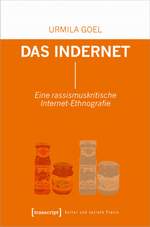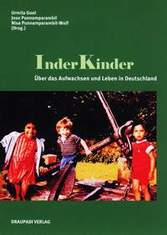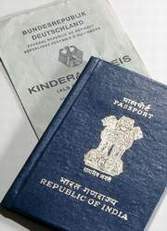... newer stories
Dienstag, 21. April 2020
Motivationsversuche in der Krise
urmila, 00:09h
Die Unileitung (auf verschiedenen Ebenen) versucht uns nahezubringen, dass alles gut wird. Dafür bekommen wir immer wieder motivierende Mails, in denen dann zum Beispiel steht:
"Ich meine, dass Ihre intensiven Vorbereitungen Früchte tragen und das digitale Semester unter dem Strich eine positive Erfahrung sein wird."
Wenn das ein Versuch ist, meine Arbeit wertzuschätzen, dann ist sie fehlgeschlagen. Bei solchen Formulierungen wird mir nur übel. Die Vorgesetzten wissen ja gar nicht, was ich tue. Die schätzen das nicht, sondern wollen mich dazu bringen, dass ich die Mehrarbeit als Chance sehe und trotz fehlender Infrastruktur alles (und mehr) gebe. Und dann schreiben sie auch noch:
"Wer weiß: Vielleicht lässt sich manches, das in diesem Semester aufs Gleis gesetzt wurde, dauerhaft nutzen?"
Sollte das als Motivation gedacht sein, funktioniert das noch weniger. Denn da wittere ich Gefahr: Wenn Ihr jetzt unter schlechten Bedingungen viel schafft, dann braucht Ihr auch in Zukunft keine bessere Bedingungen.
Es geht aber auch anders. Aus einer anderen Fakultät lese ich:
"Wir hoffen, dass Sie auch unter den aktuellen Rahmenbedingungen gute Erfahrungen sammeln können und die Freude am Lernen und Lehren beibehalten."
Eigentlich eine ähnliche Aussage, aber doch ganz anders. Denn es wird klar gemacht, dass die Rahmenbedingungen gerade nicht gut sind und vielleicht trotzdem was gut sein kann. Und der Brief endet mit:
"Wir vergessen nicht, dass die aktuellen Einschränkungen und das Kontaktverbot für manche von Ihnen sich auch persönlich stark belastend auswirken kann. Wenn Sie Rat bei persönlichen Krisen benötigen, finden Sie unter folgenden Adressen Unterstützung:
Das richtet sich wohl vor allem an die Studierenden und weniger an die Lehrenden, aber es thematisiert zumindest, dass wir wirklich in einer Krise stecken und das massive Folgen haben kann.
Diese Adressierung finde ich sehr viel motivierender als die erste.
PS: Die alleinerziehende Kollegin mit Kita-Kind schrieb mir letzten Freitag, dass sie noch nie so glücklich war, wie über die Nachricht, dass ihr Kind ab übernächster Woche von 9-14 Uhr in die Notfallbetreuung kann.
"Ich meine, dass Ihre intensiven Vorbereitungen Früchte tragen und das digitale Semester unter dem Strich eine positive Erfahrung sein wird."
Wenn das ein Versuch ist, meine Arbeit wertzuschätzen, dann ist sie fehlgeschlagen. Bei solchen Formulierungen wird mir nur übel. Die Vorgesetzten wissen ja gar nicht, was ich tue. Die schätzen das nicht, sondern wollen mich dazu bringen, dass ich die Mehrarbeit als Chance sehe und trotz fehlender Infrastruktur alles (und mehr) gebe. Und dann schreiben sie auch noch:
"Wer weiß: Vielleicht lässt sich manches, das in diesem Semester aufs Gleis gesetzt wurde, dauerhaft nutzen?"
Sollte das als Motivation gedacht sein, funktioniert das noch weniger. Denn da wittere ich Gefahr: Wenn Ihr jetzt unter schlechten Bedingungen viel schafft, dann braucht Ihr auch in Zukunft keine bessere Bedingungen.
Es geht aber auch anders. Aus einer anderen Fakultät lese ich:
"Wir hoffen, dass Sie auch unter den aktuellen Rahmenbedingungen gute Erfahrungen sammeln können und die Freude am Lernen und Lehren beibehalten."
Eigentlich eine ähnliche Aussage, aber doch ganz anders. Denn es wird klar gemacht, dass die Rahmenbedingungen gerade nicht gut sind und vielleicht trotzdem was gut sein kann. Und der Brief endet mit:
"Wir vergessen nicht, dass die aktuellen Einschränkungen und das Kontaktverbot für manche von Ihnen sich auch persönlich stark belastend auswirken kann. Wenn Sie Rat bei persönlichen Krisen benötigen, finden Sie unter folgenden Adressen Unterstützung:
- Berliner Krisendienst: https://www.berliner-krisendienst.de/
- Telefonseelsorge: 0800 - 111 0 111 oder 0800 - 111 0 222 (rund um die Uhr)
- Corona-Seelsorgetelefon der Notfallseelsorge/Krisenintervention Berlin: 030 - 403 665 885 (8-18 Uhr)
- FAQs des Studierendenwerks Berlin für Studierende in finanzieller Not: https://bit.ly/3cfQXoe"
Das richtet sich wohl vor allem an die Studierenden und weniger an die Lehrenden, aber es thematisiert zumindest, dass wir wirklich in einer Krise stecken und das massive Folgen haben kann.
Diese Adressierung finde ich sehr viel motivierender als die erste.
PS: Die alleinerziehende Kollegin mit Kita-Kind schrieb mir letzten Freitag, dass sie noch nie so glücklich war, wie über die Nachricht, dass ihr Kind ab übernächster Woche von 9-14 Uhr in die Notfallbetreuung kann.
0 Kommentare in: corona ... comment ... link
Practising Partnership
urmila, 20:56h
Ich freue mich, dass die hervorragende MA-Arbeit von Anja Schwalbe "Practising Partnership. Making connections within a transnational education network" jetzt als Band 5 der Reihe "Berliner Abschlussarbeiten der Europäischen Ethnologie" erschienen ist.
Zum Inhalt:
Does a transnational cooperation project help overcome historical power relations when cooperating across borders and continents? Departing from this self-reflexive question articulated by a European education network striving at the time to expand its membership and become ‘more global’, this ethnographic study explores how exactly global cooperation comes about. Drawing on insights from the Ethnography of Infrastructure and Actor-Network-Theory, I examine the otherwise not-so-visible work practices of educators and administrators driving such a project forward – in this case study, an ERASMUS+ funded NGO project. I show how facilitators and administrators in the project are dealing with different kinds of invisible work when interacting with the frames set by funder’s rules, on one side, and each organisations’ administrative needs, on the other. As a crucial part of their involvement, practitioners have to tackle the recurring problem of establishing connection and staying connected. Based on these observations I analyse how the project as a form itself assists in making ‘the global’ through its own transient ways of connecting and disconnecting things, people and places. The project relates to partnership in a double sense: it represents a cooperation in itself and it is at the same time used as a vehicle to achieve the said. I suggest to call this the characteristic form of partnership-as-project in which inscriptions made in the past through budgets and proposals facilitate and simultaneously shape all efforts to cooperate as equals. This case study shows where and how (funding) infrastructures very concretely participate in constructing global relations, as they are entangled in the very historical structures that projects concerned with transnational cooperation seek to challenge.
Zum Inhalt:
Does a transnational cooperation project help overcome historical power relations when cooperating across borders and continents? Departing from this self-reflexive question articulated by a European education network striving at the time to expand its membership and become ‘more global’, this ethnographic study explores how exactly global cooperation comes about. Drawing on insights from the Ethnography of Infrastructure and Actor-Network-Theory, I examine the otherwise not-so-visible work practices of educators and administrators driving such a project forward – in this case study, an ERASMUS+ funded NGO project. I show how facilitators and administrators in the project are dealing with different kinds of invisible work when interacting with the frames set by funder’s rules, on one side, and each organisations’ administrative needs, on the other. As a crucial part of their involvement, practitioners have to tackle the recurring problem of establishing connection and staying connected. Based on these observations I analyse how the project as a form itself assists in making ‘the global’ through its own transient ways of connecting and disconnecting things, people and places. The project relates to partnership in a double sense: it represents a cooperation in itself and it is at the same time used as a vehicle to achieve the said. I suggest to call this the characteristic form of partnership-as-project in which inscriptions made in the past through budgets and proposals facilitate and simultaneously shape all efforts to cooperate as equals. This case study shows where and how (funding) infrastructures very concretely participate in constructing global relations, as they are entangled in the very historical structures that projects concerned with transnational cooperation seek to challenge.
0 Kommentare in: lesen ... comment ... link
... older stories
 Foto: © Anke Illing
Foto: © Anke Illing


